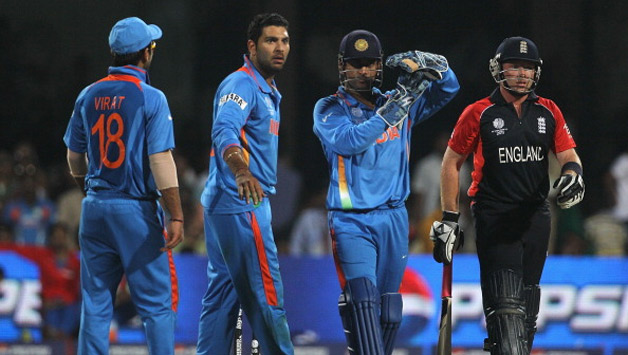
Cricket Country Staff
Editorial team of CricketCountry.
Written by Cricket Country Staff
Published: Jul 03, 2016, 11:29 AM (IST)
Edited: Jul 03, 2016, 11:29 AM (IST)


The International Cricket Council’s (ICC) annual conference in Edinburgh which saw the governing body make a number of decisions relating to the game ended on Saturday (July 2). Among the decisions, was an important call that the ICC took in regard of the Decision Review System (DRS). The ICC approved a change to the DRS playing condition in relation to the LBW “Umpire’s Call”. The size of the zone inside which the ball needs to hit for a Not out decision to be reversed to Out will now increase, changing to a zone bordered by the outside of off and leg stumps and the bottom of the bails. ALSO READ: ICC: Two divisions in Test cricket and a new one-day league in pipeline
The amendment in DRS will be in effect from October 1 or from the start of any series using DRS commencing just prior to this date. ALSO READ: Saudi Arabia unanimously elected as ICC’s 39th Associate Member
Meanwhile, there was also a discussion regarding the calling of no-balls. The ICC seeks to better understand whether the third umpire could use instant replays to call No balls more accurately for which it will arrange trials in the next few months. The trial might be staged in one of the upcoming ODIs where the third-umpire will judge a no-ball within a few seconds of the ball being delivered and convey it to the on-field umpires. Details regarding the trial although, will be announced when finalized.
Only a few days back when the Annual meeting of the governing council of cricket was underway in Edinburgh, Saudi Arabia was unanimously elected as the International Cricket Council’s (ICC) 39th Associate Member.
(With inputs from icc-cricket.com)
This website uses cookies so that we can provide you with the best user experience possible. Cookie information is stored in your browser and performs functions such as recognising you when you return to our website and helping our team to understand which sections of the website you find most interesting and useful.
Strictly Necessary Cookie should be enabled at all times so that we can save your preferences for cookie settings.
If you disable this cookie, we will not be able to save your preferences. This means that every time you visit this website you will need to enable or disable cookies again.
